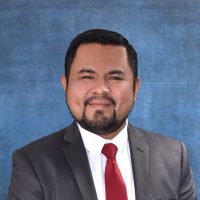
Departmental

Chaplain

Academic Assistant

Financial Manager

Marketing
The Seventh-day Adventist Church, through its educational program, desires to help youth prepare for effective citizenship in this land, and rewarding citizenship in the new earth. The educational program gives primary importance to building the character and spiritual foundation of the lives of its children and young people. Furthermore, it makes abundant provision for the acquisition and interpretation of what is appropriate from the stock of common secular knowledge and skills for mental, social, vocational, and physical development.
Likewise, since Adventist education is comprehensive; that is, it encompasses man’s life as a whole. Human works, institutions and history are contemplated from the point of view of the divine origin of man and his destiny revealed in the Word of God. Human freedom, both academic and personal, seeks a progressive search and discovery of the truth that first existed in the mind of God and has been enabled by man to rediscover through revelation, study, reflection and investigation. The final product must be, not an isolated intellectual, but a more mature and consecrated Christian.
The Department of Education exists for the purpose of promoting the cause of Christian education and of giving advice in the establishment, supervision, maintenance and operation of the schools, colleges and universities of the denomination in the territory of the Inter-American Division.
The Seventh-day Adventist Church, through its educational program, desires to help youth prepare for effective citizenship in this land, and rewarding citizenship in the new earth. The educational program of the church places primary importance on building the character and spiritual foundation of the lives of its children and youth. Furthermore, it makes abundant provision for the acquisition and interpretation of what is appropriate from the stock of common secular knowledge and skills for mental, social, vocational, and physical development.
OBJECTIVES OF ADVENTIST EDUCATION
Elementary and secondary education. The Seventh-day Adventist Church desires to provide for all its youth a general education that is within the framework of the science of salvation. They must study the fundamentals and common branches of knowledge, in order to acquire skill and maintain a high level of education.
The church elementary school will help each child develop (1) affection and appreciation for the privileges, rights, and responsibilities guaranteed to each individual and social group and (2) respect for and a healthy attitude toward each unit of society—the home. , the church, the school and the government. The elementary school will offer an organized program that ensures adequate development leading to comprehensive health, both spiritually and physically, mentally and emotionally, providing a basic fund of practical and intellectual knowledge for daily life.
The church-dependent secondary school, based on the results obtained by the primary school, has character building as its basic structure and will try to function realistically, raising the level and maintenance of each student in terms of health, mastery of the fundamental processes of learning, dignified conduct at home, vocational skills, civic instruction, proper use of free time and ethical maturity. The secondary school, as an instrument of the philosophy of the church, will seek to achieve objectives of spiritual dedication, self-development, social adjustment, civic responsibility and economic efficiency.
The institutions dependent on the church, by doing their work of custody, creativity and evaluation, help students develop values. ethical, religious and social principles compatible with the philosophy and teachings of the church, values that prepare the graduate for the profession of their choice or vocation within the organization or outside it. These institutions also help to develop in their students a higher concept of service to God and men.
In these communities of intellectuals special efforts will be made to foster the inquisitive spirit that is not content to dominate the known, but diligently explores the unknown. Adventist intellectuals participate in the aggrandizement of the islands of knowledge that exist in the immense seas of the unknown that surround humanity. Higher education requires the application of research and evaluation techniques existing in the laws of evidence. Both the Christian educator and the advanced student employ the evidentiary systems of reason and science, but they also recognize the validity of divine revelation, to which they grant supreme status.
